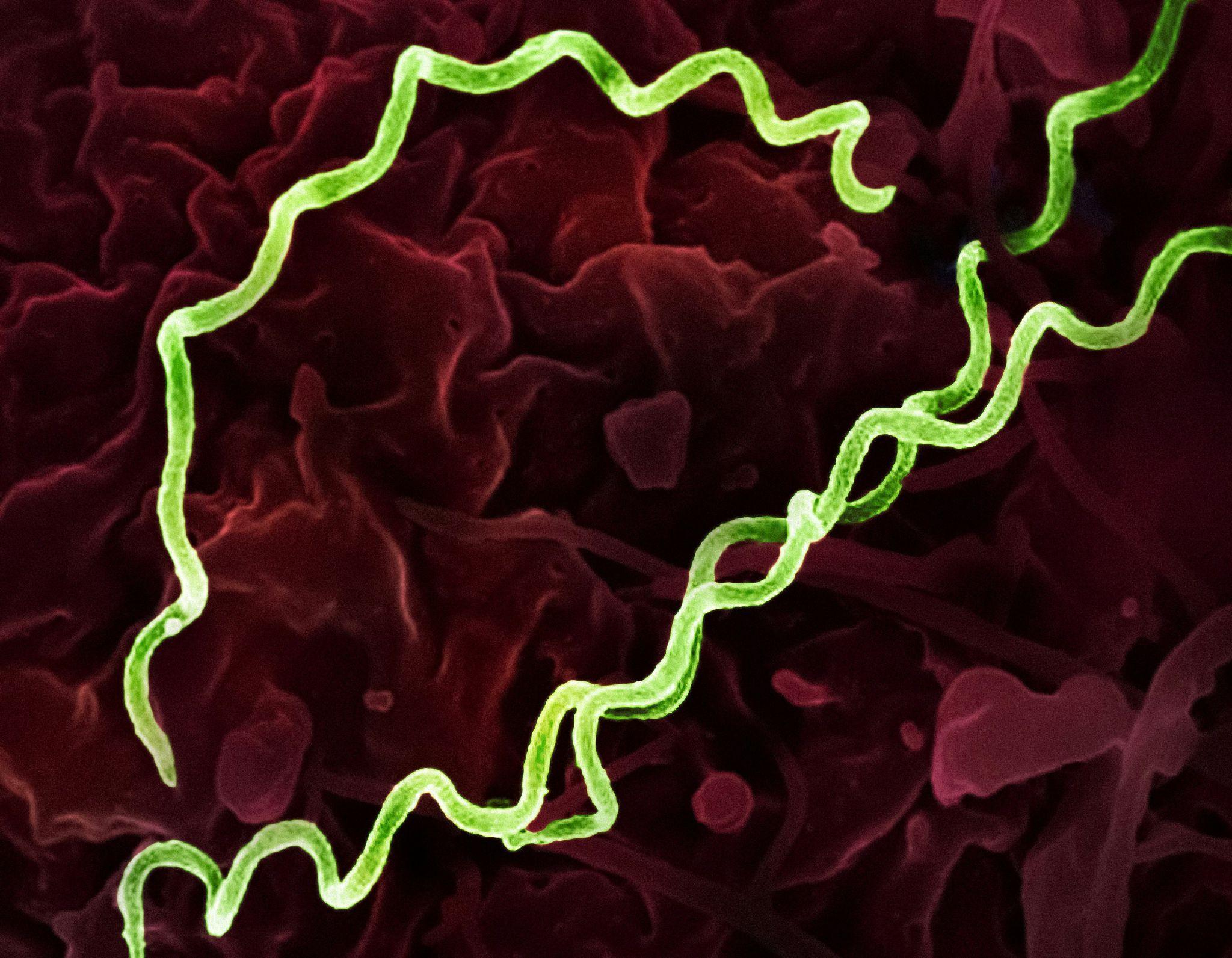Syphilis is a sexually transmitted infection (STI) caused by the bacterium Treponema pallidum. It has been a known condition for centuries, and despite the availability of treatment, it remains a concern in sexual health today.
In this resource, we will cover the stages of syphilis, how it impacts sexual health, and why it is essential to take time off for recovery after the infection is treated.
What Is Syphilis?

Syphilis is a bacterial infection that is primarily spread through sexual contact. It can affect both men and women and can result in serious long-term health problems if left untreated. The infection progresses through several stages, each with different symptoms and levels of severity.
The Stages of Syphilis
Syphilis progresses in four distinct stages: primary, secondary, latent, and tertiary. Each stage has its own set of symptoms, and understanding these stages is crucial for timely diagnosis and treatment.
1. Primary Syphilis
● Timeframe: Typically 3 weeks after exposure to the bacteria.
● Symptoms: A painless sore or ulcer, known as a chancre, appears at the site where the bacteria entered the body, often around the genital area, anus, or mouth. The sore may last 3 to 6 weeks and usually heals on its own.
● Importance: Even though the sore heals, the bacteria remain in the body and can progress to the next stage if untreated.
2. Secondary Syphilis
● Timeframe: A few weeks to several months after the appearance of the primary sore.
● Symptoms: This stage is characterized by a rash, usually on the palms of the hands and soles of the feet, and mucous membrane lesions. Other symptoms may include fever, swollen lymph nodes, sore throat, patchy hair loss, and weight loss. The symptoms can resolve on their own but indicate that the infection is still active in the body.
● Importance: It is during this stage that syphilis is most contagious.
3. Latent Syphilis
● Timeframe: This stage can last for years, and individuals may not experience any symptoms.
● Symptoms: There are no visible symptoms during latent syphilis. However, the infection remains in the body, and the bacteria can still be transmitted to others during sexual contact.
● Importance: Even without symptoms, syphilis can still cause serious damage if left untreated.
4. Tertiary Syphilis
● Timeframe: This stage can occur anywhere from 10 to 30 years after the initial infection if untreated.
● Symptoms: Tertiary syphilis can cause severe damage to organs such as the heart, liver, bones, and nervous system. It can lead to conditions like paralysis, blindness, dementia, and cardiovascular complications.
● Importance: This is the most severe stage and can result in life-threatening health problems.
How Syphilis Affects Sexual Health

Syphilis is a significant concern for sexual health due to its impact on both the body and relationships. The infection can increase the risk of contracting or transmitting HIV, making it even more critical to address any potential symptoms early.
1. Transmission: Syphilis is highly contagious during its primary and secondary stages, and it can be spread through sexual contact, including vaginal, anal, and oral sex. It can also be transmitted from an infected mother to her baby during childbirth.
2. Impact on Relationships: The stigma surrounding STIs can lead to feelings of shame or guilt for those infected with syphilis. This can create barriers to seeking treatment and discussing sexual health openly with partners.
3. Long-Term Health Complications: If syphilis progresses to the tertiary stage, it can cause permanent damage to organs, affecting a person’s overall health and ability to function.
4. Fertility: Untreated syphilis can cause complications in both men and women, including infertility. In women, it can result in stillbirth, miscarriage, or premature birth.
Why Time Off Is Essential for Treatment and Recovery

After syphilis is diagnosed, treatment typically involves antibiotics, such as penicillin, which can cure the infection. However, time off from work or daily activities may be necessary for several reasons:
1. Completing Treatment
● Antibiotics: After receiving antibiotics, individuals may feel fatigued or experience mild side effects. Taking time off can allow the body to rest and recover fully.
● Follow-Up Care: Regular check-ups and follow-up blood tests are necessary to ensure that the infection has been fully treated. Taking time off helps individuals attend these appointments without additional stress.
2. Preventing Transmission
● Avoiding Sexual Contact: It is essential to avoid any sexual contact during treatment, especially during the infectious stages (primary and secondary syphilis), to prevent transmission. Individuals should refrain from sexual activity and reduce the risk of passing the infection to others.
● Spreading Awareness: Time off provides the opportunity for individuals to inform their sexual partners about the infection, which is necessary for proper treatment and prevention.
3. Physical and Mental Health Recovery
● Physical Rest: Syphilis can cause fatigue, fever, and other flu-like symptoms, especially during the secondary stage. Taking time off allows individuals to rest and recover, supporting the body's healing process.
● Mental Health: The emotional toll of dealing with an STI, particularly one with as much stigma as syphilis, can cause anxiety, stress, and depression. Time off from work or school can provide individuals with the space they need to seek emotional support and process their experience.
4. Avoiding Complications
● Prevention of Long-Term Damage: Timely treatment is crucial to prevent the infection from progressing to tertiary syphilis, which can cause life-threatening complications. Time off allows individuals to seek prompt medical attention and avoid permanent damage.
Time Off and Treatment Are Key to Syphilis Recovery
Syphilis is a serious infection that progresses through distinct stages, each with its own symptoms and level of severity. It is essential to take time off from work or school to ensure that proper treatment is followed, complications are avoided, and the infection is fully resolved. Rest, follow-up care, and communication with partners are crucial for a successful recovery.
Get Your Doctor's Note from My Dr’s Note Today!
If you need a doctor's note for work to take time off for recovery, My Dr’s Note offers real doctors' notes online. Get a real doctor's note online for work, school, or any other reason. Contact My Dr’s Note today to receive your legitimate doctor’s note and ensure you have the proper documentation for your recovery.
About the Author
The author is a healthcare writer with over 10 years of experience in medical content creation. He has written extensively on topics related to sexual health, diseases, and wellness.



You must be logged in to post a comment.